There was a time when rock and roll bands from Ireland were saddled with obligatory comparisons to U2. Most of the Irish bands of the 1980s, like the soulful rockers Hothouse Flowers, took many years to shed the tag of being “the next U2.” This was due in part to the fact that so many Irish rock and roll bands tried desperately to be U2.
Not anymore. Irish rock music has matured and new acts are no longer referred to lazily as “the next U2.” Bands that labored in U2’s shadow — such as Hothouse Flowers, the Waterboys, or the Belfast-based Energy Orchard — have broken up or simply reinvented themselves.
Of course, some things haven’t changed. Bono and his colleagues in U2 are still the biggest thing by far in the world of Irish rock, with standbys like Van Morrison, Sinéad O’Connor and Enya still going strong. And — surprise, surprise — even the Hothouse Flowers have got back together, and rumor is The Waterboys will soon do the same.
Here, Irish America presents some of Ireland’s latest releases…
Bap Kennedy Domestic Blues (E-Squared)
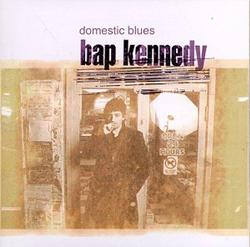
How does a Belfast punk get to the Grand Ole Opry? Practice. With his brother Brian Kennedy touring the world as Van Morrison’s backup singer, Bap Kennedy broke up his band — Energy Orchard — in 1996, to pursue his first love: country `n’ western. This Nashville-recorded debut is foot-tappingly enjoyable in the tradition of Merle Haggard, Willie Nelson, and even Tom Petty, with guest appearances by Steve Earle and Nanci Griffith. Kennedy’s Belfast accent is mostly lost in western guitars, although the stories of his native town peek through in songs like ‘The Shankill and The Falls’ and ‘Ghosts of Belfast’ (“You’ll be a long time in the grave/And you can’t live in the past/Let’s lay down to rest/All the ghosts of Belfast.”) Stay tuned at the album’s end for an unlisted, hidden track: a countrified, mandolin-driven version of ‘Dirty Old Town.’
Sinéad O’Connor So Far … The Best Of (Chrysalis)
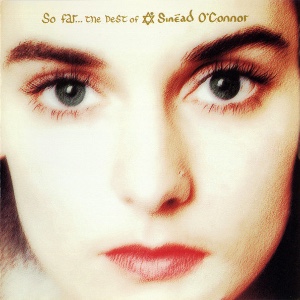
This 15-song collection is, of course, woefully incomplete. Yet it is a good starter for those not yet versed in O’Connor’s music, or for those whose collection of O’Connor’s music began in the days before compact discs. This collection relies heavily on Sinéad’s first two records, which launched her to stardom when she was barely out of her teens. Now aged 30, O’Connor’s soaring vocals have attempted everything from big-band (‘Success Has Made a Failure of Our Home’) to Broadway (‘Don’t Cry For Me Argentina’). Serious fans are advised to also check out the soundtrack to the Neil Jordan film The Butcher Boy, for Sinéad’s heart-breakingly beautiful version of the title track, a post-WWII Irish classic.
Shane MacGowan The Crock of Gold (ZTT)
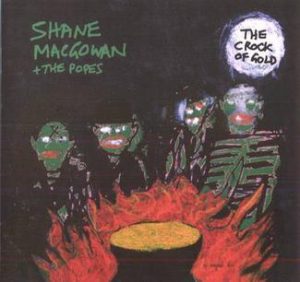
The obituaries have been at the ready since at least 1991, when the hard-livin’ MacGowan split with his band, The Pogues. Since then, the Pogues have disintegrated and MacGowan has released this, his second and strongest solo effort yet. At the age of 40, MacGowan has shed the World Music aspirations of his former band and has reverted to what he knows best: punky, souped-up versions of the Irish ballads he grew up with in County Tipperary. A sonic descendant of the Clancy Brothers, The Dubliners and Tom Waits, MacGowan packs more emigrant dreams and boozed-up longing on one disc than others can manage throughout entire careers. This disc once again gives two fingers to the doubters and asserts MacGowan has plenty of stories left in him.
The Devlins Waiting (Universal Records)
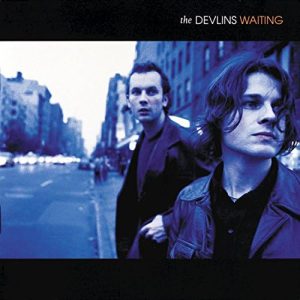
This pair of Dublin brothers — Peter and Colin — had moderate radio success with their U.S. debut, 1993’s Drift. The rules have changed since then, but luckily, the Devlins’ reliance on timeless guitar melodies and crafty songwriting means they didn’t have to shed the now-out-of-date grunge sound adopted by too many other bands formed in the early `90s. This sophomore effort finds the Devlin boys — now located mostly in New York — still at home with songs about lost love and vague aspirations, songs like the album’s title track:
“Waiting in the airports/ waiting for may airmiles/ waiting in slow motion/ coming through the turnstiles/ And if you ever change your mind/ You know I’m not hard to find…”
“Waiting in the airports/waiting for my airmiles/ waiting in slow motion/ coming through the turnstiles/And if you ever change your mind/You know I’m not hard to find…”
Enya Paint the Sky with Stars (Reprise)
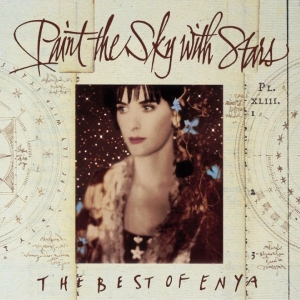
The Quiet Woman of Irish rock. She’s sold 33 million records worldwide and has even had her sound sampled by hip-hop superstars The Fugees, yet you’d almost never know she existed. The Donegal woman doesn’t tour and rarely gives interviews, yet anyone who has heard an easy-listening station or even walked into a shopping mall would have heard her heavily-synthesized, ethereal songs. This greatest hits collection shows there’s more to Enya than New Age mysticism and luxury car commercial soundtracks. Her version of the classic `I Dreamt I Dwelt in Marble Halls’ is the sweetest lullaby this side of Heaven.
The Divine Comedy Casanova (Setanta)
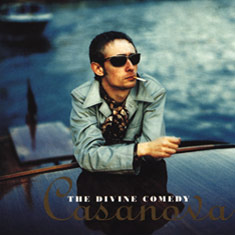
Neil Hannon, who grew up the son of a strict Protestant minister in Northern Ireland, has adapted the `Divine Comedy’ persona in recording his witty and wordy pop songs. Songs like `Something for the Weekend’ and `Becoming More Like Alfie’ simultaneously embrace and spoof the jet-setting, continental life in the tradition of Oscar Wilde and Noel Coward. Hannon’s greatest gift is his refusing to take himself seriously.
Various Artists Now and In the Time To Be (Grapevine)
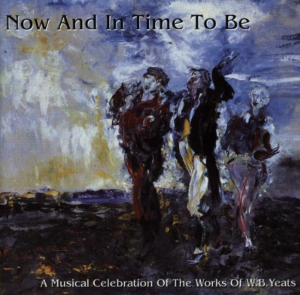
This collection of new and already recorded material suggests that W.B. Yeats, if he was able, would have set his poems to music. Others would argue Yeats’ poems were always set to a tune of their own, and this collection of traditional Irish and rock `n’ roll renditions is unnecessary. Regardless, this disc collects musical interpretations of Yeats’s words by such diverse talents as The Waterboys, Christy Moore and the actor Richard Harris. Van Morrison’s ‘Before the World Was Made,’ The Cranberries’, ‘Yeats’s Grave’ and especially Shane MacGowan’s ‘An Irish Airman Foresees His Death’ suggest the Irish `Renaissance’ forged nearly a century ago by Yeats and his contemporaries is far from over.
Editor’s Note: This article was originally published in the May / June 1998 issue of Irish America. ⬥

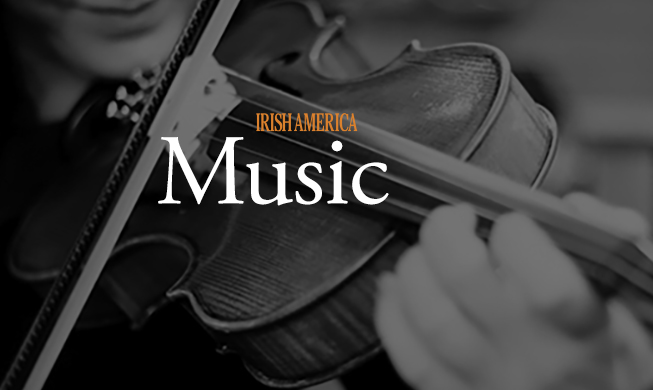
Leave a Reply